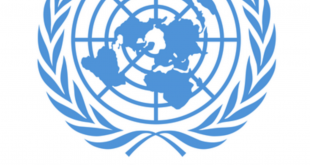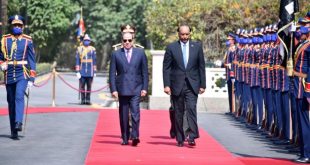Editorial
After military clashes erupted again in Libya late last week, with the advance of the Libyan National Army towards Tripoli, Egypt’s Foreign Ministry immediately issued a statement voicing “deep concern” over the consequences of the fighting.
Over the past eight years, Egypt has stressed the importance of restoring stability in Libya and the need for Libyan state institutions, including the Libyan National Army and security authorities, to do their duties in safeguarding the interests of the Libyan people.
In its statement, the Egyptian Foreign Ministry also reiterated the need for Libyan national institutions to protect Libya from the chaos caused by militias, in order to allow the Libyan people to reclaim control over their country’s wealth and build a unified and stable Libyan state.
Egypt also confirmed its stance on backing UN efforts, led by envoy Ghassan Salame, and commitment to reaching a political solution as the only option to protect the integrity and unity of Libyan territory and the Libyan people.
At the same time, Egypt underlined the need to combat the growing threat of terrorist groups in Libya that have benefited from the absence of a strong Libyan central state to expand their presence. Both Egypt and Tunisia have paid a very heavy price due to the smuggling of weapons from Libya, along with terrorist elements who carried out criminal attacks in the two countries.
Egyptians will never forget the horrendous terrorist crime committed by the Islamic State group (IS) against 21 Egyptian Christians who were brutally slaughtered in front of cameras in early 2015 only because of their religion. Due to the absence of a strong Libyan army at that time, the Egyptian army had no option but to respond directly to the killings by targeting IS camps in Libya.
To protect its borders with Libya that stretch over more than 1,000 kilometres, and to help the Libyan people combat terrorist groups, such as IS and Al-Qaeda, Egypt has repeatedly called for international support to back the Libyan National Army in its fight against terrorists. In that framework, Egypt has appealed for a partial lifting of the arms embargo against Libya to enable the Libyan National Army to confront terrorist organisations.
However, terrorist groups are not Libya’s only threat. Militias in the Western parts, backed by Qatar and Turkey, have also turned the lives of citizens in key cities into havoc and endless suffering. Only a few months ago, and despite the presence of the internationally recognised government of Prime Minister Fayez Al-Sarraj in Tripoli, warring militias were involved in weeks of infighting over benefits for militia leaders, and certainly not over serving the interests of the Libyan people.
Prime Minister Al-Sarraj had no option but to appeal to the sponsors of those militias in Doha and Ankara to convince them to stop the fighting. Certainly, the Libyan people should not be left hostage to militias paid by countries that have no direct interest in Libya, except for serving their failed ideology in support of political Islamic groups, namely the Muslim Brotherhood.
The militias that control vast parts in western Libya have no interest in reuniting the Libyan state and restoring the country’s territorial integrity as long as oil money keeps pouring into their pockets. That’s why they rejected the outcome of the parliamentary elections held in 2012, which resulted in a clear defeat for the Muslim Brotherhood.
However, there remains room for hope that Libyan suffering and chaos could come to an end if Libya’s neighbours and the international community support the political process led by Salame. The on going fighting should not postpone the national conference that Salame was aiming to hold later this month in order to set a timetable to hold elections and reunite the institutions of the Libyan state, including the army and control over oil income.
Libya, a very dear country for Egyptians, should not be left hostage to the interests of militias and warlords. The first step in that direction is to support the Libyan National Army in its fight against terrorist organisations and militias that do not serve the interests of the Libyan people, but rather those of regional powers who have repeatedly tried, and failed, to expand their influence in several Arab countries.
From: Al-Ahram Weekly






